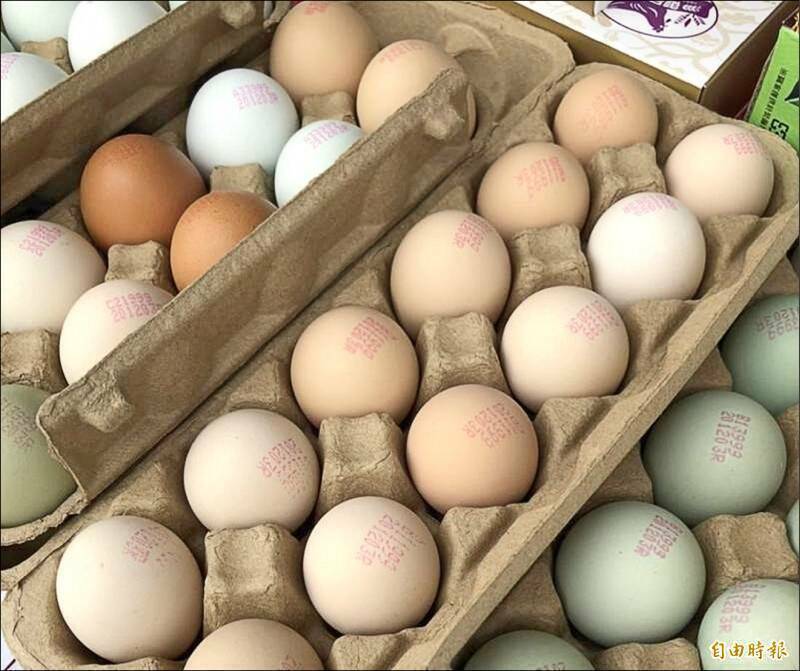The Council of Agriculture stated today that from next week (23rd) to mid-April, more than 2 million and 3 million eggs will be shipped to Taiwan from Australia and Turkey.
(file photo)
[Central News Agency] The Council of Agriculture stated today that the import plan launched to alleviate the shortage of eggs, in conjunction with flight operations, will not be able to arrive in Taiwan this week; Turkey has successively shipped more than 2 million and 3 million eggs to Taiwan.
After the first batch of 360,000 Australian eggs arrived in Taiwan by air in late February, the second batch of imported eggs has not yet arrived in Taiwan.
The Council of Agriculture pointed out that the second batch of imported eggs will arrive in Taiwan at the earliest on the 23rd of next week, including the next two days (24th and 25th). Several batches will be airlifted from Australia to Taiwan, and then arranged to arrive in Taiwan by sea.
Please read on...
In addition, the Turkish eggs will be shipped by sea. It is expected to set sail on the 19th and 20th, and more than 2 million eggs will arrive in Taiwan by mid-April.
The Council of Agriculture pointed out that the total number of eggs that Australia and Turkey have recently arrived in Taiwan is more than 2 million and 3 million eggs, in order to alleviate the domestic egg shortage and stabilize egg prices.
Chen Jizhong, chairman of the Council of Agriculture, once said that from now on, imported eggs will be sold directly on the shelves in addition to the domestic eggs exchanged with processors for inventory.
In this regard, the Council of Agriculture stated that, after all, imported eggs must be packaged and labeled before they can be marketed, and related operations will increase expenses. Therefore, the imported eggs arriving in Taiwan from next week will still be given priority for exchange with processors. The quantity will be planned for channel sales.
As the domestic laying hen industry still accounts for 80% of the "traditional" houses, poultry houses are still open, and the temperature changes are the same as outdoors. The weather is too hot or too cold to reduce the egg production rate.
However, after the Spring Festival this year, it was originally an off-season when the market demand was low, but due to the low temperature, the egg production rate of traditional laying hen farms dropped from 70% to 52%. There is a shortage of eggs in the country.
The normal laying rate of European, American and Japanese laying hen farms is more than 85%.
At present, the daily output of eggs in the country is 111,000 boxes.
When the daily output is 112,000 boxes, the Council of Agriculture estimates that there is a daily egg supply gap of 500,000 to 800,000 eggs.
In order to alleviate the shortage of eggs, the Council of Agriculture originally planned to import eggs by the end of March, and exchange their stocks with processors for domestic eggs to go on the market, so as to supplement the supply.
However, under the general shortage of eggs and panic buying in the world, Chen Jizhong said in the Legislative Yuan on the 15th that the special import of eggs will continue until April, and the source countries allowed to import will increase by 5 countries.
The countries that originally complied with the relevant quarantine regulations of the Council of Agriculture and allowed the import of eggs are the United States, Australia, and Japan, and Japan has suspended the export of eggs.
From the 10th, the Council of Agriculture has added 5 countries including Brazil, Turkey, Thailand, the Philippines, and Malaysia to facilitate multiple negotiations on egg procurement.
